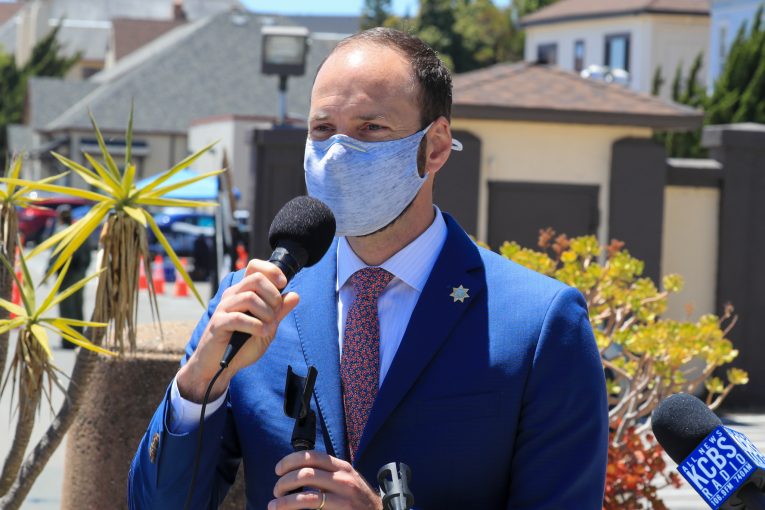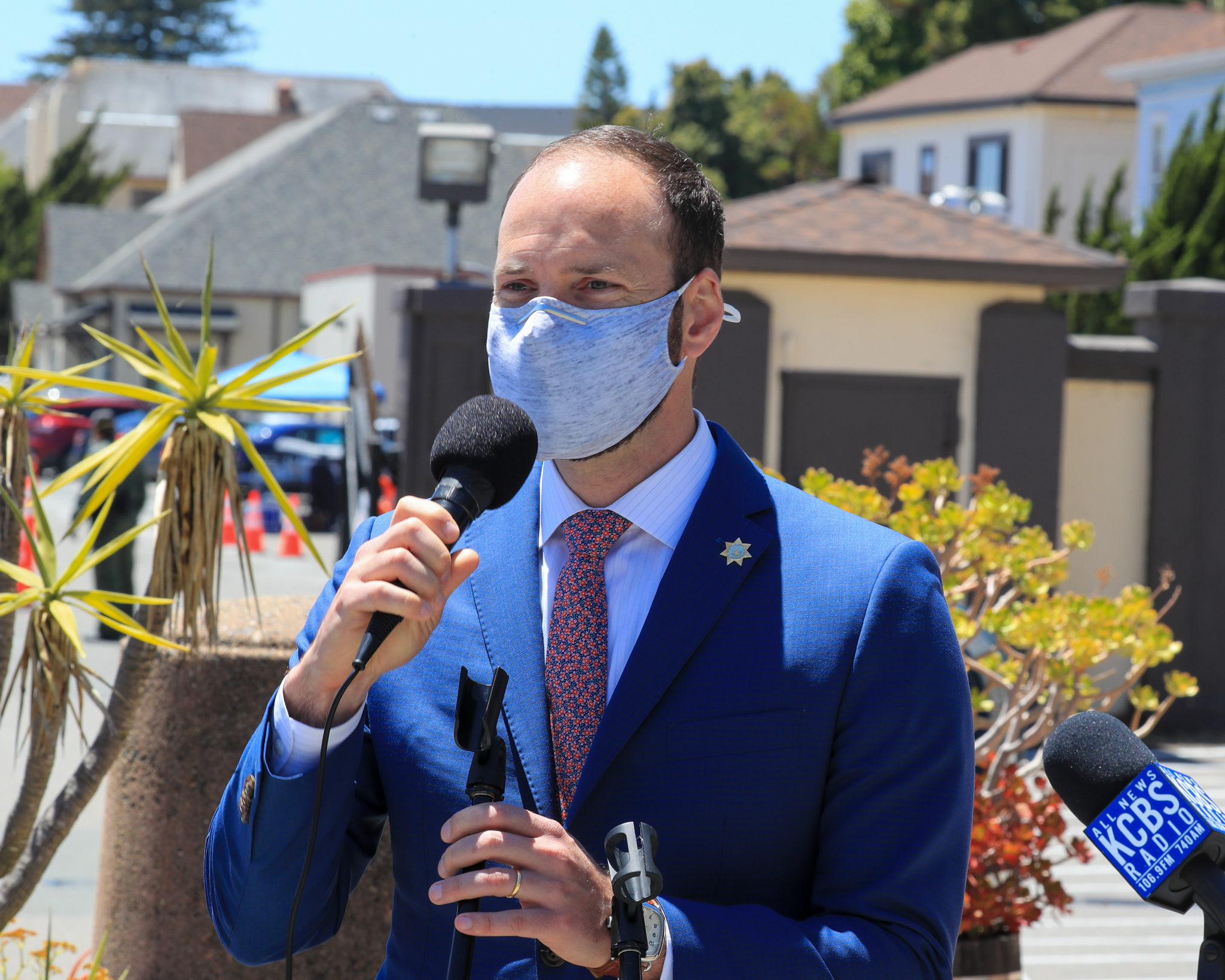

By Jake Romero
SAN FRANCISCO — Since taking office in January 2020, San Francisco District Attorney Chesa Boudin has approached criminal prosecution with a more progressive model.
“In San Francisco, 75 percent of people booked into jail struggle (had) substance abuse, mental health, or both,” states the webpage of the DA’s Office. “DA Boudin’s policies focus on prioritizing treatment, resources, and support for those whose crimes stem from underlying struggles.”
But the efficacy of Boudin’s work has garnered ample criticism in the past year, leading to a recall election on June 7 that has received attention and support from San Francisco Mayor London Breed, Silicon Valley moguls and national news outlets.
Using the #RecallChesa hashtag on Twitter, San Franciscans have recently expressed their discontent with Boudin’s policies, blaming the DA for rising crime rates and lack of safety.
“Buckle up, it’s recall season,” tweeted one user, along with a video of the District Attorney being booed at Saturday’s Chinese New Year Parade.
The recall has been gaining steam since January 2021 when the Committee Supporting the Recall of Chesa Boudin first petitioned for the DA’s resignation—though the Committee failed to collect the 53,000 signatures required for an election.
A second recall effort—led by a group called San Franciscans for Public Safety—began petitioning just four months later and collected 83,000 signatures by the October deadline, successfully setting the election in motion.
Boudin’s statement of defense claimed the effort relied on “false and disproven Republican talking points attempting to undo progress and take us backwards. The old approaches didn’t make us safer—they ignored root causes of crime and perpetuated mass incarceration.”
Those supporting the recall have donated over $2.5 million to the election compared to the roughly $1 million donated in support of Boudin, according to the SF Ethics Commissions’ Campaign Finance Dashboard.
A political action committee called Neighbors For a Better San Francisco has donated roughly $1.8 million to the recall campaign, and it previously donated almost $500,000 to the recent recall of three progressive San Francisco school board members.
The PAC’s largest donor is Republican businessman and philanthropist William Obendorf who, according to the San Francisco Examiner, contributed more than $600,000 last year.
Both recalls also received donations from prominent Silicon Valley investors like David Sacks and Garry Tan.
Not all of Silicon Valley is against Boudin, who received a $100,000 contribution from angel investor Chris Larsen, but his opponents and critics are not all Republicans, either.
The first recall effort was launched by Republican businessman Richie Greenberg, and the second was initiated by Democratic activists Mary Jung and Andrea Shorter.
Jung, speaking on the 83,000 petition signatures gathered, told the New York Times, “There’s only 33,000 registered Republicans in the city. So, you know, you do the math.”
Adam Johnson, a columnist for the San Francisco Chronicle, emphasized that much of the recall—from donor contributions to critical media coverage—is coming from outside the city, arguing that the driving force is a “partisan proxy battle.
“The Boudin recall simply [serves] as a stand-in for anti-liberalism and 1990s ‘tough on crime’ politics,” said Johnson in his recent column. “Wealthy, pro-carceral forces are trying to make an example out of Boudin: Don’t toe the ‘tough on crime’ line, and you will suffer costly political battles nonstop.”

That video of Boudin getting jeered at the parade says it all, Boudin had better start thinking of where and what he will be doing come June.
San Francisco’s population is about a third Asian so this definitely doesn’t bode well for Boudin.
Well written, thanks.
I agree, fair and unbiased.
One question though, was it hard slipping that video past the boss?
How would they be able to determine this?
People aren’t booked into jail based upon those factors.